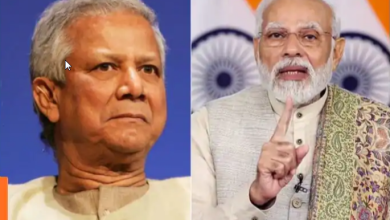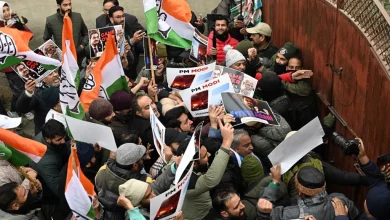Maldives looking to shift from India to China after parliamentary polls
 Male: The sweeping victory of Maldives President Mohamed Muizzu’s People’s National Congress (PNC) in recent parliamentary elections is seen as a strong endorsement of his policy since he took office six months ago to pursue close ties with China and reduce the archipelago’s dependence on neighboring India, analysts said.
Male: The sweeping victory of Maldives President Mohamed Muizzu’s People’s National Congress (PNC) in recent parliamentary elections is seen as a strong endorsement of his policy since he took office six months ago to pursue close ties with China and reduce the archipelago’s dependence on neighboring India, analysts said.
According to Kashmir Media Service, the analysts were of the view that after Maldives PNC and its allies won three-quarters of the seats, that policy could be fast-tracked, setting back India’s efforts to limit China’s influence in the Indian Ocean region.
The April 21 parliamentary polls handed more than 70 seats to Muizzu’s party and its allies in the 93-member assembly.
Muizzu is expected to strengthen strategic ties with Beijing and press ahead with Chinese-funded infrastructure projects that had been blocked by the outgoing opposition-controlled parliament.
His party has promised an infrastructure boom, including apartments, bridges and a new airport.
“We will bid farewell to the enduring anguish of housing insecurity, a pressing and longstanding concern burdening the Maldivian populace,” his office said last week after the election results were announced.
The push for infrastructure projects comes even as the International Monetary Fund has warned that the Maldives faces a high risk of debt distress.
China established its footprint in the Maldives a decade ago under a pro-Beijing administration that had joined Beijing’s Belt and Road Initiative. But its influence diminished under Muizzu’s predecessor, former president Ibrahim Mohamed Solih, who had built strong ties with India.
The ground for strengthening ties with Beijing was set by the Maldivian president during a visit to China in January – he made his first official overseas visit to China instead of making New Delhi as had been customary. Both China and Maldives agreed to a “comprehensive strategic cooperative partnership.”








